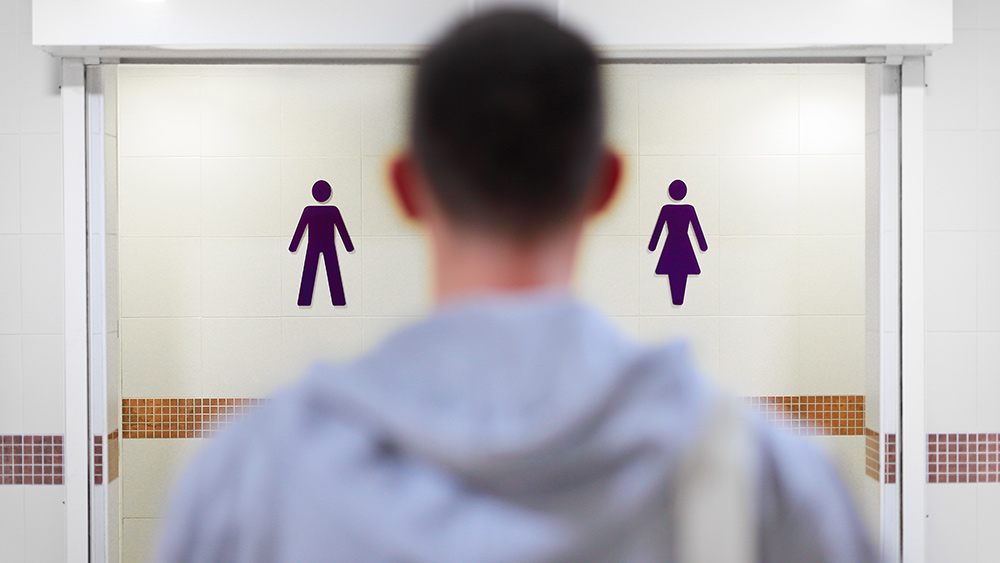
Chinese authorities are clashing with thousands of protesters all over the country in an unprecedented wave of protests over Wuhan coronavirus (COVID-19) lockdown policies and Chinese Communist Party (CCP) tyranny.
The COVID-19 policy, known as "Zero-COVID," aims to isolate every person suspected of being infected. While this may have kept China's COVID-19 case numbers relatively lower compared to those of other major countries, it has led to a lot more strife as the public's acceptance of these protocols disappears following numerous lockdowns. (Related: G20 declares support for global digital COVID-19 vaccine passport following meeting between Biden and Xi.)
The ongoing protests began in Urumqi, the capital of the northwestern Xinjiang Uyghur Autonomous Region, following a fire in an apartment building that killed 10 people, including a three-year-old child. Protests in the city broke out after people attributed the deaths to pandemic controls preventing emergency responders from saving the lives of the building's residents.
Footage posted online showed hundreds, possibly thousands of demonstrators confronting riot police on the streets of Urumqi, home to four million residents, many of whom have been barred from leaving their homes for as long as 100 days in response to a handful of COVID-19 cases. Footage also showed protesters chanting demands that they be released from lockdowns and singing the Chinese national anthem and repeating loudly the line "Rise up, those who refuse to be slaves."
Protests also calls for Xi's resignation and end to CCP rule
Some of the largest protest actions occurred in Shanghai, as demonstrators gathered on Middle Urumqi Road – named after the city – in a sympathy protest. The protesters called for the end to the CCP's one-party rule and for President Xi Jinping to resign. They chanted: "Communist party step down! Xi Jinping step down!"
In response, police erected barriers to prevent too many people from gathering in Middle Urumqi Road. Dozens of people were also arrested.
In the capital of Beijing, protests erupted in at least four different sites in the city, including the elite Tsinghua University, where students gathered to demand more democracy, rule of law and freedom of expression. Many students held up blank pieces of paper – a symbol taken up by other protesters all over the country – to express their discontent with the country's massive censorship apparatus.
Thousands of protesters also took to the streets in other major urban centers such as Wuhan, Chengdu and Guangzhou, while smaller protests took place in cities like Nanjing, Dali, Changsha and Xi'an.
In Wuhan, protesters gathered at several locations throughout the city, singing the national anthem and chanting "Lift the ban! We want to live!" In Chengdu, thousands gathered at a public square holding up blank pieces of paper and singing protest anthems, while more demonstrators marched around the city. In Guangzhou, protesters gathered at various locations shouting "Let the people go!" and "Lift the ban!"
Local officials ease some COVID rules amid protests
In response to the unprecedented wave of protests, local health authorities in certain parts of the country have eased some zero-COVID measures.
In Beijing, health officials said essential exits must never be blocked – a new policy update that would have saved the 10 people killed in the Urumqi fire. The officials added that marking and expanding areas at high-risk of COVID-19 infection and transmission will now only be done after "rigorous assessment."
The city's health officials noted that the use of solid objects to enclose or isolate areas and block fire escape routes, unit doors and community entrances and exits is now "strictly forbidden."
In Guangzhou, one of the new epicenters of the current COVID-19 outbreak, people confined to their homes are now exempted from compulsory coronavirus testing.
The relaxation of restrictions in Beijing and Guangzhou is in line with a push by some top CCP officials to gradually ease current policies and replace them with more "targeted and precise" regulations for tackling infections.
Local and provincial officials in Urumqi and Xinjiang continue to insist that the building where the fire broke out was not sealed off. They further deny that the victims were blocked from escaping, claiming that they died after inhaling toxic fumes.
Despite this denial, certain restrictions in Urumqi had been relaxed. Citizens in low-risk areas are now allowed to shop and go to work and food delivery businesses have already resumed operations. Flights from Urumqi to other provinces have also resumed.
Read the latest news coming out of China at CommunistChina.news.
Watch this clip from NewsMax discussing how the protests over the CCP's zero-COVID policy could boil over into a revolution.
This video is from the NewsClips channel on Brighteon.com.
More related stories:
Protests break out in COVID epicenter Wuhan.
Zero-COVID policy having severe effects on Chinese economy.
Sources include:
Please contact us for more information.



















